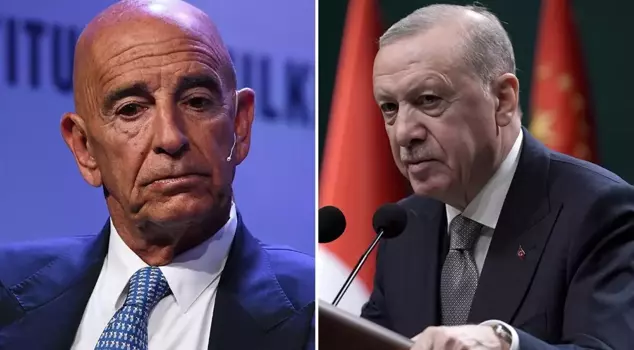
25.07.2025 16:05
Foreign Policy has revealed a secret plan that aims to limit Turkey's influence in northern Syria, enhance Israel's security against Iran, and ensure that the U.S. acts in coordination with its allies in the region. According to the information obtained, the plan has been categorically rejected by President Recep Tayyip Erdoğan.
Foreign Policy, one of America's leading foreign policy publications, has revealed a secret plan prepared by the White House during the Donald Trump era, aimed at reducing tensions between Turkey and Israel. According to a report by Mirat Haber based on Foreign Policy, the plan centered on ending the power struggle in Syria and ensuring stability.
OBJECTIVES AND CONTENT OF THE PLAN
The report from Foreign Policy stated that the main goal of this plan was to limit Turkey's influence in northern Syria, enhance Israel's security against Iran, and ensure that the U.S. acted in coordination with its allies in the region. It was reported that security advisors close to the Trump administration, Pentagon officials, and figures associated with the Israeli lobby were influential in the preparation process.
THE FIVE-POINT SECRET PLAN
The items of the plan were listed as follows:
Border Security Guarantee for Turkey: The U.S. would provide a border security guarantee for Turkey against the PKK/YPG threat.
Air Corridor for Israel: Support would be provided for Israel to use Syrian airspace in its operations against Iranian targets.
Political Transformation for YPG: The U.S. planned to mediate between Turkey and the YPG for its transformation into a political structure.
Intelligence Sharing Against Iran: Limited intelligence sharing between Turkey and Israel against Iran was proposed.
New Constitution in Syria: A constitutional committee supported by the U.S., Turkey, and Israel would be established.
ERDOĞAN REJECTED IT CATEGORICALLY
According to the report, President Recep Tayyip Erdoğan categorically rejected the plan. Turkey informed Washington that it would not agree to any deal as long as the YPG presence continued. This stance led to a hardening of the Netanyahu government and an increase in tensions along the Turkey-Israel line.
DEBATE ON "WHO MADE THE REVOLUTION" IN SYRIA
With the emergence of the plan, the behind-the-scenes role of the U.S. in the Syrian revolution during the Trump era was brought back to the agenda. It was emphasized that during the Trump administration, efforts were made to shape the balances on the ground at the negotiating table, excluding many actors from these plans. Thus, the question "Who made the revolution in Syria?" once again pointed to Washington-centered plans.
NO OFFICIAL STATEMENT YET
No official statement has been made regarding the Foreign Policy report from either Ankara or Tel Aviv. However, the leak of the secret plan has created a significant stir in the international arena, bringing the diplomatic balances between the two countries back to the forefront.